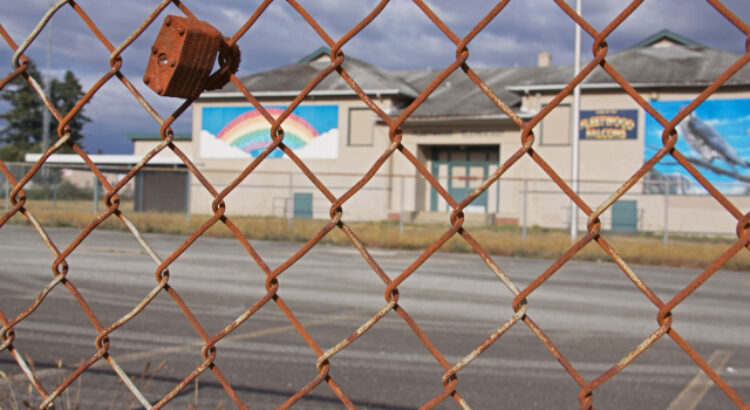By Manos Antoninis/ DPhil, is the director of the Global Education Monitoring Report at UNESCO.
The fault lines are open and fractions are rising in the United States. Inequalities, which have always been there, are now fully exposed because of COVID-19, including its effect on marginalized communities. The death of George Floyd shined the spotlight even brighter on the racial inequality and segregation embedded in this country’s education system.
Ongoing discrimination, alienation and segregation in schools promote exclusion in education and damages the opportunity to build more inclusive attitudes among members of the population. It’s time for this to stop.
By latest counts, over a third of black students are in schools where at least nine out of 10 of their classmates are also black. Having made great progress to reduce intensely segregated schools in the 1960s, legislation in the 1990s released hundreds of U.S. school districts from court-enforced integration. It should not be a surprise that the effect of this loophole is seeping out into society. Unfortunately, a “them” and “us” position has been normalized.
School choice has a lot to answer for. When white parents choose schools, they use racial composition and factors for which race is a proxy, such as school safety, quality of facilities and academic performance. These choices could trickle down to their children, shape their values and, presumably, they could grow up blinkered to the reality of the United States demographic composition today, which is diverse.
In a perfect world, schools would encourage children to actively seek out different views. Unfortunately, even if schools are diverse, students may self-segregate by choice, seeking out groups of friends with whom they feel most comfortable. The right teacher can address this, but the reality is that these divides often settle in.
The new 2020 Global Education Monitoring Report shows that just over half of teachers in the U.S. bother adapting their teaching to the cultural diversity of students. This results in some marginalized students being siphoned off into slower school tracks or dropping out. In fact, one in three students in the U.S. say they feel like outsiders in school, more than almost any other country in the world.
It is naive to think that teachers are immune to social biases any more than anyone else. They have better racial attitudes in recent years than before, but that does not mean that discrimination is a thing of the past. In the latest major survey on this issue in 2017, it found around one third of teachers believed that inequality was mainly due to African Americans lacking “motivation or willpower to pull themselves out of poverty.”
While we can try not to connect the dots, the stark truth is that Black students are identified with disabilities at higher rates than their peers, whether because of bias in procedures, testing material or people. In some states, minorities might officially be up to five times more likely to be in special education categories without triggering discrimination concerns.
It is important to note that teachers with minority backgrounds are underrepresented relative to the student population. The drop in African American teachers came hand in hand with school integration, a conscious choice of education leaders and policy makers. As a whole school district transitioned to full integration, the number of African American teachers in employment would be slashed by a third. This should be a lobbying matter.
The sharp end of the wedge for some children in this story is the school-to-prison pipeline in many disadvantaged areas. Children are funneled into the juvenile and criminal justice systems for often minor infractions. Black students are suspended and expelled three times as often as white students. In a Mississippi school district, children as young as 10 were routinely arrested and taken to jail in handcuffs upon teachers’ requests — some kept for days before seeing a lawyer. Black girls were strongly affected, representing the fastest-growing group in the juvenile justice system.
Social tolerance will never be part of the fabric of society until we bring children up in a tolerant environment. No child is born racist. But the system can make them so. Educating everyone the right way, including policemen and women, could make the world of difference. To join the police force in the U.S. you have to take 19 weeks training, compared to 130 weeks in Germany — less time than many trade jobs require. Adjusting what and how learning happens is a critical part of today’s unrest.
The dust will settle after the killing of George Floyd, the protests that followed and the pandemic, but we must make sure it lands in a much more inclusive education system when it’s done.
Manos Antoninis, DPhil, is the director of the Global Education Monitoring Report at UNESCO.

Manos Antoninis, DPhil, is the director of the Global Education Monitoring Report at UNESCO.
Fuente: https://gemreportunesco.wordpress.com/2020/06/30/we-need-to-talk-about-racism-in-schools/






 Users Today : 38
Users Today : 38 Total Users : 35403011
Total Users : 35403011 Views Today : 47
Views Today : 47 Total views : 3332220
Total views : 3332220